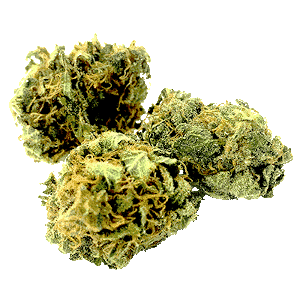
How Medical Marijuana Helps With and Treats Alzheimer’s Disease
- Medical marijuana is being used to help patients suffering from Alzheimer’s disease.
- Numerous scientific studies suggest marijuana is safe and effective for the treatment of Alzheimer’s disease.
- Marijuana and cannabis-infused medicines can help ease symptoms of Alzheimer’s disease such as agitation.
- Evidence suggests marijuana might slow the progression of Alzheimer’s disease.
Medical marijuana is turning out to be a godsend for many patients suffering from Alzheimer’s disease.
Medical marijuana doctors are reporting that compounds produced in cannabis called cannabinoids help to tame some of the symptoms of Alzheimer’s such as dementia and agitation.
Moreover, cannabinoids may slow the progress of conditions that lead to dementia.
In addition to the anecdotal evidence, several studies have led researchers to the conclusion that medical marijuana is both safe and effective at treating several Alzheimer’s-related symptoms.
Medical marijuana is also being used to treat other conditions that cause dementia such as Parkinson’s disease and Huntington’s disease.
What is Alzheimer’s Disease?
In 1906, a German psychiatrist named Alois Alzheimer (after whom the disease was named) discovered upon autopsy that deceased Alzheimer’s patients showed dramatic changes to their brain tissue. Dr. Alzheimer found tangled bundles of fibers called neurofibrillary or tau tangles as well as clumps of abnormal proteins known as amyloid plaques.
These conditions cause a significant loss of communication between neurons which in turn results in dementia. As the condition worsens, the damage makes day-to-day tasks including coherent communication impossible.
In the beginning stages of Alzheimer’s, the symptoms are mild and include confusion and forgetfulness. Patients begin to suffer from depression, social withdrawal, mood swings, irritability and aggressiveness, and changes in sleeping habits.
In the final, deadly stages patients suffer an irreversible shrinking of brain tissue. Over time, they become delusional. Functions and skills learned in the developing years of childhood are often the last to disappear. Performing even basic functions such as swallowing can become extremely difficult.
Researchers have not yet determined the cause of Alzheimer’s. It might be caused by a combination of environmental, genetic, and lifestyle factors. In fact, half of Alzheimer’s patients appear to share specific genetic mutations.
Currently, there is no cure or 100 percent effective preventative measures for Alzheimer’s. However, there are some treatments that can slow the progression of damage to the brain.
And now many researchers are finding that medical marijuana offers a safe and effective way to help improve the quality of life for Alzheimer’s disease patients.
Medical marijuana for dementia
According to an article in alzheimers.com.uk, behavioral symptoms of dementia including aggression and agitation are being managed successfully with cannabis. Evidence also suggests that marijuana can be effective in reducing the amyloid plaques found in the brains of Alzheimer’s patients.
Frontiers in Pharmacology recently published a research paper claiming that CBD seems to relieve some of the symptoms of Alzheimer’s disease. CBD is a non-intoxicating cannabinoid. Furthermore, THC, the compound in marijuana that causes a high, has also been shown to help protect neurons from damage. The report also cited other benefits such as the antioxidant and anti-inflammatory properties of cannabinoids.
In the end, the researchers found that cannabis does, indeed, help to mitigate the cognitive impairment associated with Alzheimer’s.
Further reports suggest that CBD actually promotes neurogenesis — the growth and development of neurons. One study, conducted on mice with Alzheimer’s disease resulted in a significant reduction in neurodegeneration. Moreover, many of the subjects that were treated with cannabis over the course of eight months actually regained some measure of social recognition.
Another preliminary study took place at the Salk Institute for Biological Studies (La Jolla, California). Researchers there harvested human brain tissue with amyloid plaques and exposed them to CBD and THC. Amazingly, the toxic proteins were eradicated and the neurons remained viable.
Supplementation with cannabinoids targets the human endocannabinoid system (ECS). The ECS naturally produces cannabinoids called endocannabinoids that are responsible for coordinating a wide array of bodily functions. Supplementing the ECS with the phytocannabinoids found in cannabis helps to prevent neuronal damage caused by an over-activated immune system. This not only helps Alzheimer’s patients but also helps those with disorders such as Parkinson’s disease and Huntington’s disease.
How medical marijuana is used to treat Alzheimer’s disease
Medical marijuana patients wanting to supplement with cannabinoids have several options for delivery methods including smoking, vaping, capsules, tinctures, edibles, patches, and concentrates.
Patients in the early stages of Alzheimer’s might benefit from some of these products. However, Alzheimer’s patients suffering from advanced symptoms will have trouble with most of these delivery methods. For these patients, tinctures are often the best bet. They can be added to food or beverages or dropped under the tongue where the cannabinoids can be directly absorbed into the bloodstream.
Keep in mind that there are several different types of tinctures. Full-spectrum and broad-spectrum tinctures often have an unpleasant taste. However, tinctures made with purified THC and CBD are often more palatable since cannabinoids have no flavor.
Also, keep in mind that not all U.S. states with medical-use-only marijuana programs consider Alzheimer’s to be a qualifying condition for a medical marijuana card. And some states leave the decision up to medical marijuana doctors as to whether or not the patient is eligible for a card up.
Furthermore, some states such as Texas, Georgia, South Carolina and others limit the levels of THC in medical marijuana products allowing the production and sale of only high-CBD, low-THC products.
How to get a medical marijuana card for Alzheimer’s disease
While some states allow the sale of marijuana and cannabis medicines to all adults over the age of 21, many require patients to obtain a medical marijuana card.
The first step in obtaining a card is to consult with a certified medical marijuana doctor in your state. He or she will determine if the patient qualifies for the state’s medical marijuana program.
Once a patient has been approved, entered into the state’s database, and received their card, they will be allowed to purchase medical marijuana from a state-licensed medical mariuana dispensary. In most medical marijuana states, patients who are unable to purchase and administer their own medicine oftentimes may appoint a caregiver to assist them.
Also, keep in mind that CBD oil derived from hemp is legal nationwide. Anyone can buy CBD online without a medical marijuana card. However, the best results are often achieved by using a mixture of THC and CBD and possibly other cannabinoids such as CBN and CBG.
Helpful Medical Marijuana Links:
Sources and additional reading
- Cannabinoids for the Treatment of Agitation and Aggression in Alzheimer’s Disease
- The therapeutic potential of the endocannabinoid system for Alzheimer’s disease
- Endocannabinoid signaling in Alzheimer’s disease
- A molecular link between the active component of marijuana and Alzheimer’s disease pathology
- Neuroprotective effect of CBD… on beta-amyloid-induced toxicity in PC12 cells
- The Potential Therapeutic Effects of THC on Alzheimer’s Disease
- The Role of Endocannabinoid Signaling in the Molecular Mechanisms of Neurodegeneration in Alzheimer’s Disease
- Cannabinoids for the treatment of dementia
- CBD in vivo blunts beta-amyloid induced neuroinflammation by suppressing IL-1beta and iNOS expression
- CBD: A promising drug for neurodegenerative disorders?
- Cannabinoid receptor 1 deficiency in a mouse model of Alzheimer’s disease leads to enhanced cognitive impairment despite of a reduction in amyloid deposition
- Cannabidiol Promotes Amyloid Precursor Protein Ubiquitination and Reduction of Beta-Amyloid Expression in SHSY5YAPP+ Cells Through PPARγ Involvement
- Safety and Efficacy of Medical Cannabis Oil for Behavioral and Psychological Symptoms of Dementia
- Cannabinoids for the Treatment of Agitation and Aggression in Alzheimer’s Disease
- CBD Modulates the Expression of Alzheimer’s Disease-Related Genes in Mesenchymal Stem Cells
- In vivo Evidence for Therapeutic Properties of CBD for Alzheimer’s Disease
- Cannabinoids Remove Plaque-forming Alzheimer’s Proteins From Brain Cells
















